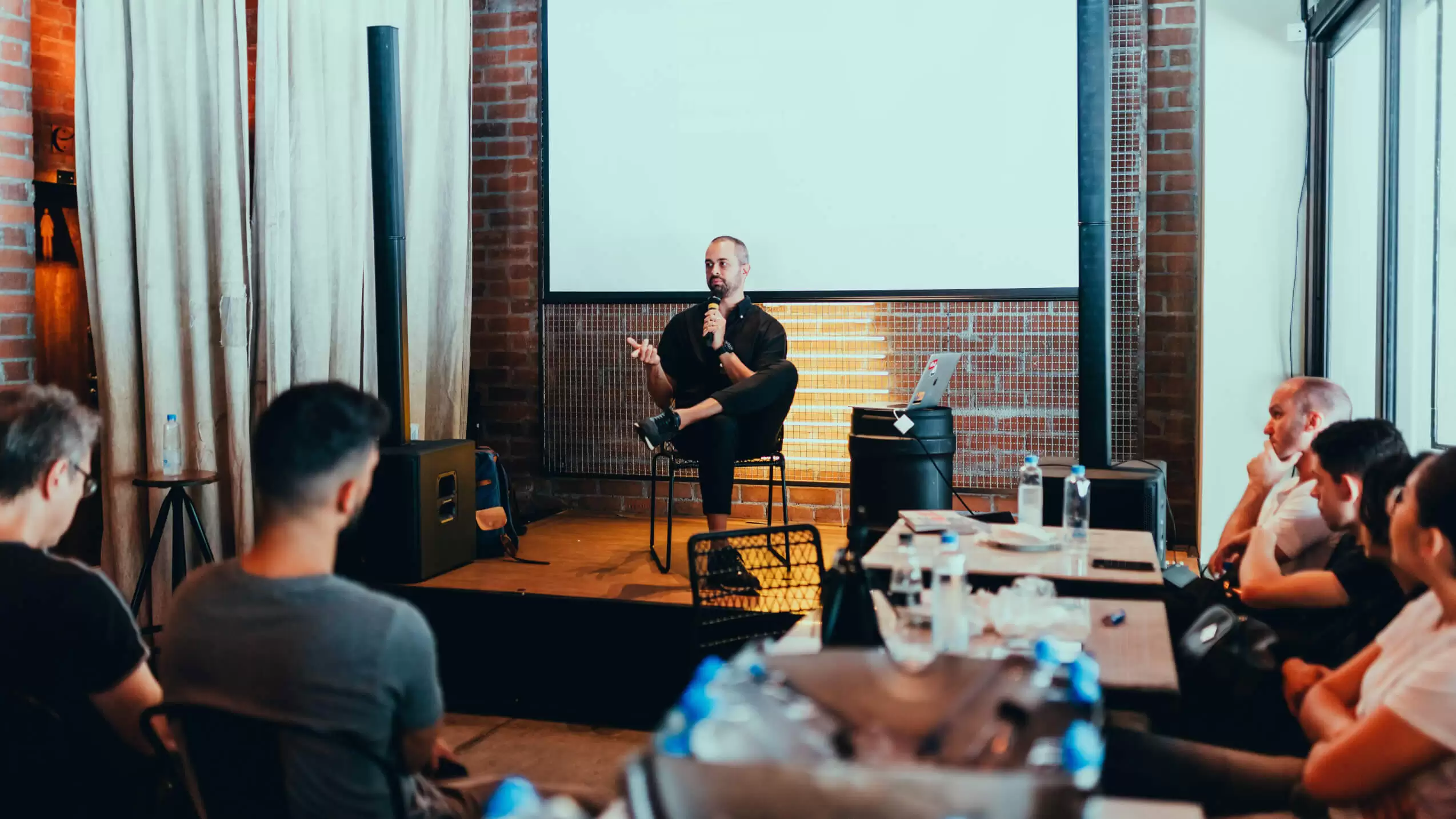Why Event Branding Matters & How to Create Immersive, Sustainable & On-Brand Events
From bold visuals to digital touch-points, effective event branding drives recognition, sparks emotion, and keeps your brand front of mind...

In our ever-changing industry, it is time to use the lessons of virtual events and blend them with physical, in-person event experiences to create seamless online/in-person events that cater to both audiences.
A key piece of advice we give to our clients is “don’t imitate, reinvent”.
If you’re planning a hybrid event, open your mind to a whole new set of possibilities and shift your objectives and budget accordingly. Don’t just try to imitate your in-person event online. Instead, think about why and what you are trying to achieve and who it is for.
Importantly, really consider how you are going to capture the attention of your audiences – both your remote attendees and your in-person attendees. The expectation of what people will receive has increased hugely since the worst of the pandemic. What tactics can you use to engage people within the first moments of your event to ensure they stick around?
One thing that hasn’t changed in the shift from physical to virtual events is the importance of content. But, while it remains one of, if not the key feature to get right, we can also shift our perspective a little here too.
Extending content reach, i.e. reusing it for continued audience engagement is hugely beneficial for improved sales and event ROI. For instance, create short, digestible, on-demand videos of your key event moments for sharing over your channels and for promoting future events. Consider content reusability at the strategy stage of your event plan.
And by reusability, we don’t just mean interesting content, we mean the quality of content too. Audience expectations are high, we are competing for time, and the very real ‘screen fatigue’. We are used to television-quality content, and we dedicate a lot of our limited time to the TV – just think how immersed you can become in a quality TV series and how much time you give to it. Producing broadcast-quality content – and a tight broadcast-like schedule – is essential to capturing and maintaining the attention of your audience.
And bring this into your post-event ROI analysis:
These are important factors alongside the more numeric analytics.
Attending an event remotely is a very different experience from those attending in-person. But we expect flexibility more now than ever and audiences will expect the option. And so, it is vital to tailor the event experience accordingly, and both should be just as impressive as the other. What features will make the virtual experience shine? And what would impress in person?
The event location has always been an important factor for an in-person event – it’s that first impression that sets the tone. Your remote attendees will also appreciate an easy-to-navigate, branded event platform with plenty of time to orient and explore. Spend time considering how to best blend the digital and physical together to create an engaging dialogue between attendees, platform features, pre-recorded and live speaker content, and importantly, what tech you need to achieve it.
Together with increased reach, detailed attendee insights are one of the most important and valued benefits of online events. Hybrid events offer the best of both worlds – physical human connection and richer insights, but they do cost more, and demonstrating ROI can be tricky. Despite this, 50% of event professionals expect them to deliver greater ROI than pre-pandemic events, and 56% placed hybrid events as 50:50 in their 2022 event mix according to Forrester’s Q3 2021 report.
So be clear in your strategy with what you want to achieve and choose an event platform and venue that will help you deliver. Ask what data insights can be garnered from the platform, how detailed they are (event level or session level, for instance), and how you can integrate them into your current processes or martech stack. If you don’t consider this at an early stage, delivering an event with a positive ROI becomes even more difficult, and valuable opportunities can be missed.
If you’d like any advice on event platforms – unbiased of course – we are event production specialists, and we’re proud to work alongside some of the industry’s best. You can also try out Platform Match, our digital tool that saves you time, stress and money and delivers the perfect event platform for your event straight to your inbox.
Now is the time to prepare for digital-forward hybrid experiences, whether you’re taking your flagship event over to hybrid, or you’re implementing hybrid features within your event mix.
Get in touch to discuss your hybrid event build, or for more advice on hybrid event planning.
or
Designed and built by ONQOR.